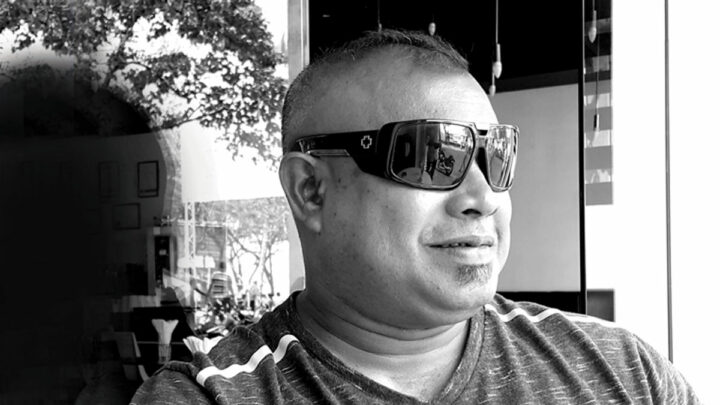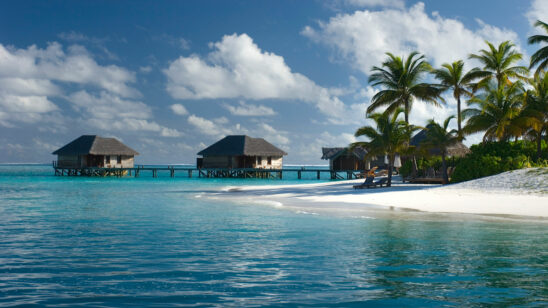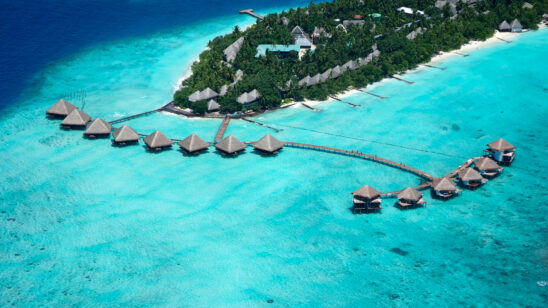
Careers: Ibrahim “Shark” Shakir
[vc_row][vc_column][vc_column_text]
Ibrahim Shakir is a surveyor by profession. He was not always interested in the field. In his boyhood, as a student of Majeediyya School, his preferred field was that of football. He was a star midfielder, winning many awards. But after completing his secondary education, he joined the Ministry of Public Works. On the recommendation of Maizan Ibrahim Manik, a director general at the ministry, he teamed up with a group of United Nations Development Programme (UNDP) surveyors conducting research on constructing a harbour in Shaviyani Atoll.
[/vc_column_text][vc_separator][vc_column_text]He found out that he had a natural aptitude for it. It involved being in the water quite often, and Shakir (known as Shark because of his love for the sea) took to it almost immediately. “We were doing really interesting stuff back then,” he says. “We were monitoring the movements of the sand, doing beach profiles and monitoring erosion. And I was working under the leader, an Indian consultant, Kumar, who was very appreciative.”
Shark has never been into books; he is a man of action. However, he realized that to get ahead in the field, he had to have some theoretical knowledge. But Shark was despondent; he had barely scraped by in his GCE O’Levels, studying was not his forte. However, his mentor Kumar, who was pleased with his performance on the field, encouraged him to study.
So after two years of government service, Shark decided to go abroad for higher studies. Kumar had told him that a diploma would be sufficient for the country’s needs. “You don’t need a vast theoretical framework to understand it,” Shark recalls Kumar saying to him. “You just need to be [involved] in it.”
Soon Shark was in Adelaide, Australia. He describes the experience as a formative one, not just in regards to his profession but on a more fundamental level. He experienced a different culture and had to adapt. Communication was a challenge; Shark learnt the English that was spoken at home was radically different from what was spoken on campus so it was a steep learning curve.
But in the end Shark was doing much better in his studies than he had anticipated. His course work was focussed mostly on the practical aspects of surveying, which he had little trouble with. “I was an attentive student, and maintained perfect attendance,” he says. “And the classes were interesting. We’d have old visiting professors come and explain how things were done in their day, so we’d get an understanding of how far we’d come in terms of the science and the technology.”
After completing his studies, Shark returned to the Maldives and resumed work at the ministry, but this time as a surveyor. A few years later, in ’97, he undertook his first commercial survey project, for Kihaadhuffaru, which was being developed as a resort.
As a surveyor, Shark’s work entails giving accurate measurements of land. It’s about “finding out the size” as he puts it. In the context of a resort development, it involves measurements of the beach line and reef line, noting high and low tides, the sizes of the inner and outer reefs. Measurements have to be accurate to within 10 to 20mm. Surveying is essential to a resort, as only a certain percentage of the land is allowed to be built up. A surveyor will work closely with designers (architects) and engineers, doing ‘structure set-outs’ after design. After the finishing touch has been applied by the construction team, the surveyor will make the final site plan up to date.
Over the years Shark has worked with many leading local resort brands, including Universal and Crown. He was instrumental in several notable projects over the years which include the Conrad Rangali underwater restaurant (the first underwater space in the country), the underwater spa at PER AQUUM Huvafen Fushi and the underwater lounge at PER AQUUM Niyama. He is also currently involved in the upgrades of several Universal resorts.
Though there is a market today for surveyors, it is a hard one to penetrate. “The equipment is very costly,” explains Shark. “So it’s difficult to give the kind of comprehensive product that I want.” Now a self-employed man, Shark reveals that he received generous assistance from Universal Enterprises and Amin Construction, who sponsored his equipment.
He is also involved in teaching. “I’m always ready to teach anyone who’s interested,” he says. “Whatever knowledge I have, I want to pass it on.” He regularly involves young people who are fresh out of school in his projects. “They remind me of how I was after I’d finished school,” he laughs. “I’m able to relate to them because I’ve lived that life.” To work with him all you need is “an open heart and able hands.” He is more interested in the willingness to apply things, in what is tangible rather than abstractions.
What of the future? Shark reveals his desire to build “Shark World”, a vast water-sports arena in the country. “As a destination that is 99 per cent water, having such a complex here would be ideal,” he says. “It’s something that I’ve had in mind for a while and I hope that it’s realised someday. I won’t give up hope.”[/vc_column_text][/vc_column][/vc_row]






